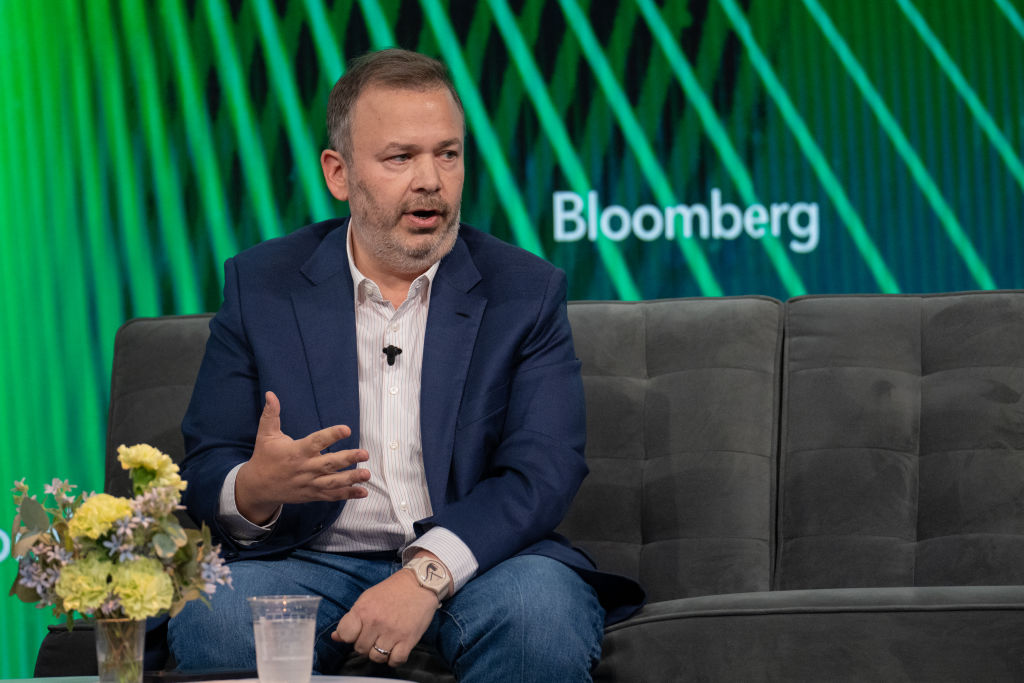Get the latest financial news, insights and expert analysis from our award-winning MoneyWeek team, to help you understand what really matters when it comes to your finances.
You are now subscribed
Your newsletter sign-up was successful
Want to add more newsletters?

Twice daily
MoneyWeek
Get the latest financial news, insights and expert analysis from our award-winning MoneyWeek team, to help you understand what really matters when it comes to your finances.

Four times a week
Look After My Bills
Sign up to our free money-saving newsletter, filled with the latest news and expert advice to help you find the best tips and deals for managing your bills. Start saving today!
Thank goodness for mergers and acquisitions (M&As). With the momentum behind global recovery slowing and markets seemingly range bound, the global-takeover boom has been the only thing offering us any excitement this year.
High profile deals - such as JP Morgan Chase's $58bn takeover of Bank One, AT&T Wireless's $41bn sale to Cingular Wireless and Morrisons' purchase of Safeway - have received endless column inches, but they're just the tip of the iceberg. According to the FT, the value of worldwide M&A deals reached $861bn (£472m) during the first half, compared with $625bn for the same period last year. The US is seeing its "highest level of activity since the year 2000" and Europe, with deals like Sanofi-Synthelabo's e51bn bid for fellow pharma firm Aventis on the cards, isn't far behind. But is this good news for shareholders? The answer is both yes and no.
On the plus side, when share prices are low - relative to the cost of creating businesses - takeovers mean shareholders can get out at somewhere near fair value. That makes them something of a blessing. Think how happy M&S shareholders must have been when Philip Green first tabled his bid (see page 23). In the week the shares moved from 274p to a more acceptable 358p. But while a bid is excellent news for shareholders in the short term, over the past 30 years a series of studies have suggested that most takeovers end up destroying value, not creating it. And the bigger they are, the more they tend to destroy.
MoneyWeek
Subscribe to MoneyWeek today and get your first six magazine issues absolutely FREE

Sign up to Money Morning
Don't miss the latest investment and personal finances news, market analysis, plus money-saving tips with our free twice-daily newsletter
Don't miss the latest investment and personal finances news, market analysis, plus money-saving tips with our free twice-daily newsletter
Consider, for example, Glaxo's Sir Richard Sykes, who pushed through the takeover of Wellcome and negotiated the firm's eventual merger with SmithKline Beecham, says Graham Searjeant in The Times. Sykes is now voicing concerns over whether the merger will create extra value for shareholders. If the share performance is any guide, he has a point. Since the merger, the group's market value has tumbled from about £120bn to £70bn, destroying virtually the whole value of the Beechams part of the business. So why do managers consistently push mergers through? For a couple of reasons, says Searjeant. Firstly, when markets are expensive - as they are in the US now - managers need to find some way to justify share prices that make "no sense" in terms of actual profits and growth prospects. Announcing a merger that comes with potential cost savings or synergies' can bridge the credibility gap.
But there's another reason too: money. Not money for the shareholders, but for advisers and managers. Take the case of Marks & Spencer. In this high-profile takeover, the fees involved for advisers on the takeover offer by Philip Green will be huge. The upshot of this is that takeovers often offer short-term gains, but in exchange for long-term pain. That means shareholders must be nimble, seeking to buy takeover candidates - ailing firms in consolidating sectors, perhaps - rather than hold shares in large acquisitive groups. They then need to sell their shares quickly when a bid is in the air, rather than hang on for arguments and revelations that the synergies were not as big as first thought. I bet WH Smith shareholders wish they had sold when takeover talks were first mooted by venture capital group Permira two months ago. Then shares in the chain hit 365p. Now the talks are off and the shares are back down at 316p.
Get the latest financial news, insights and expert analysis from our award-winning MoneyWeek team, to help you understand what really matters when it comes to your finances.
MoneyWeek is written by a team of experienced and award-winning journalists, plus expert columnists. As well as daily digital news and features, MoneyWeek also publishes a weekly magazine, covering investing and personal finance. From share tips, pensions, gold to practical investment tips - we provide a round-up to help you make money and keep it.
-
 The ‘mirror will’ flaw which could mean your savings end up with strangers – how to protect your legacy
The ‘mirror will’ flaw which could mean your savings end up with strangers – how to protect your legacyWriting a will lets you pass your wealth onto your loved ones. But couples with a so-called ‘mirror will’ could unintentionally leave their family exposed to being cut out.
-
 Saba comes for Edinburgh Worldwide’s board... again
Saba comes for Edinburgh Worldwide’s board... againSaba Capital Management has announced fresh plans to displace the board of Edinburgh Worldwide despite having been decisively beaten in a recent vote

